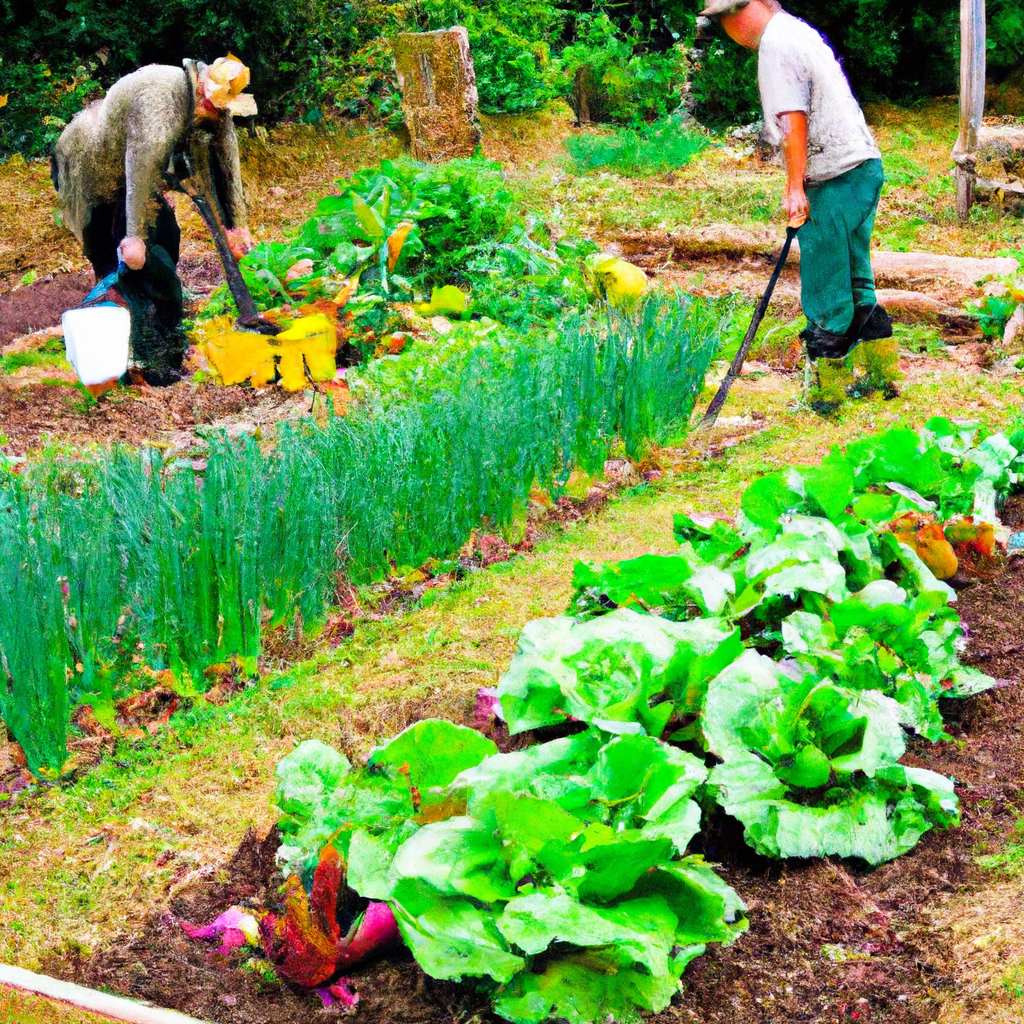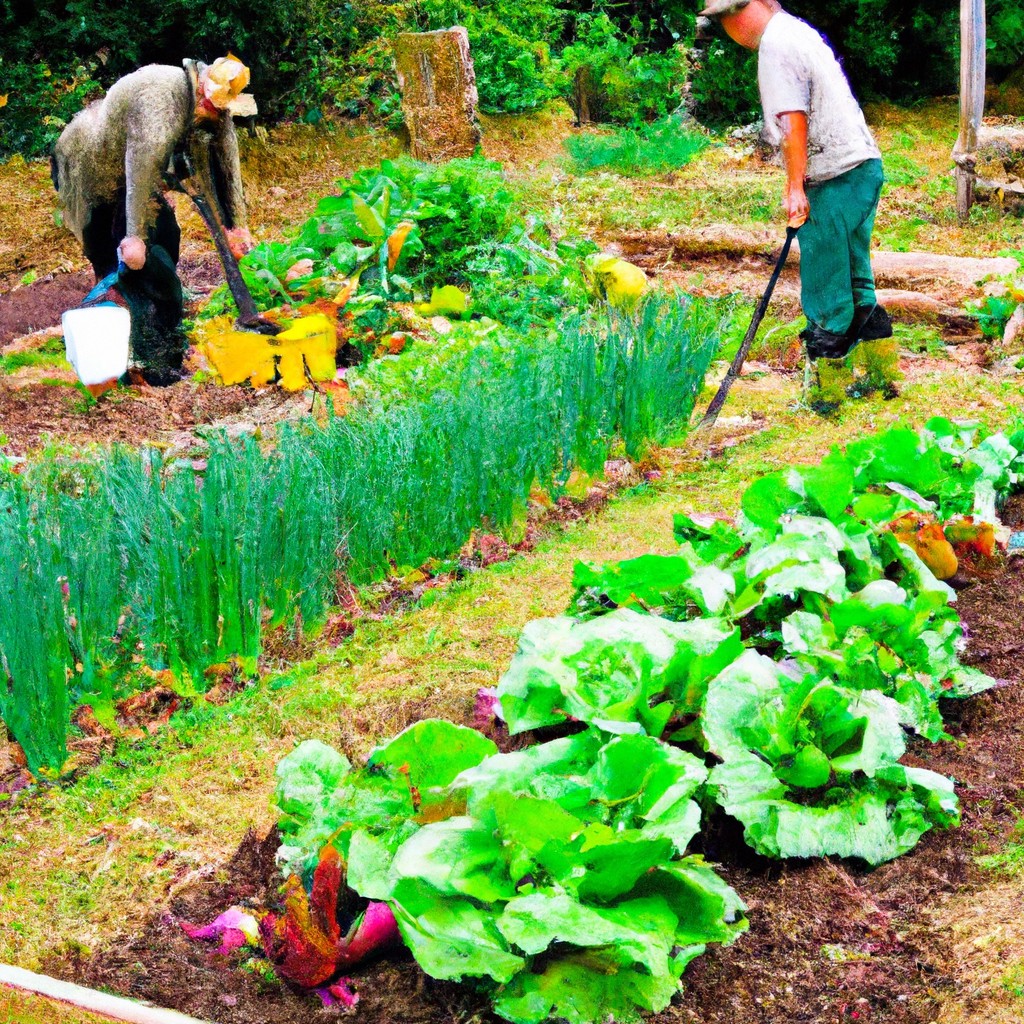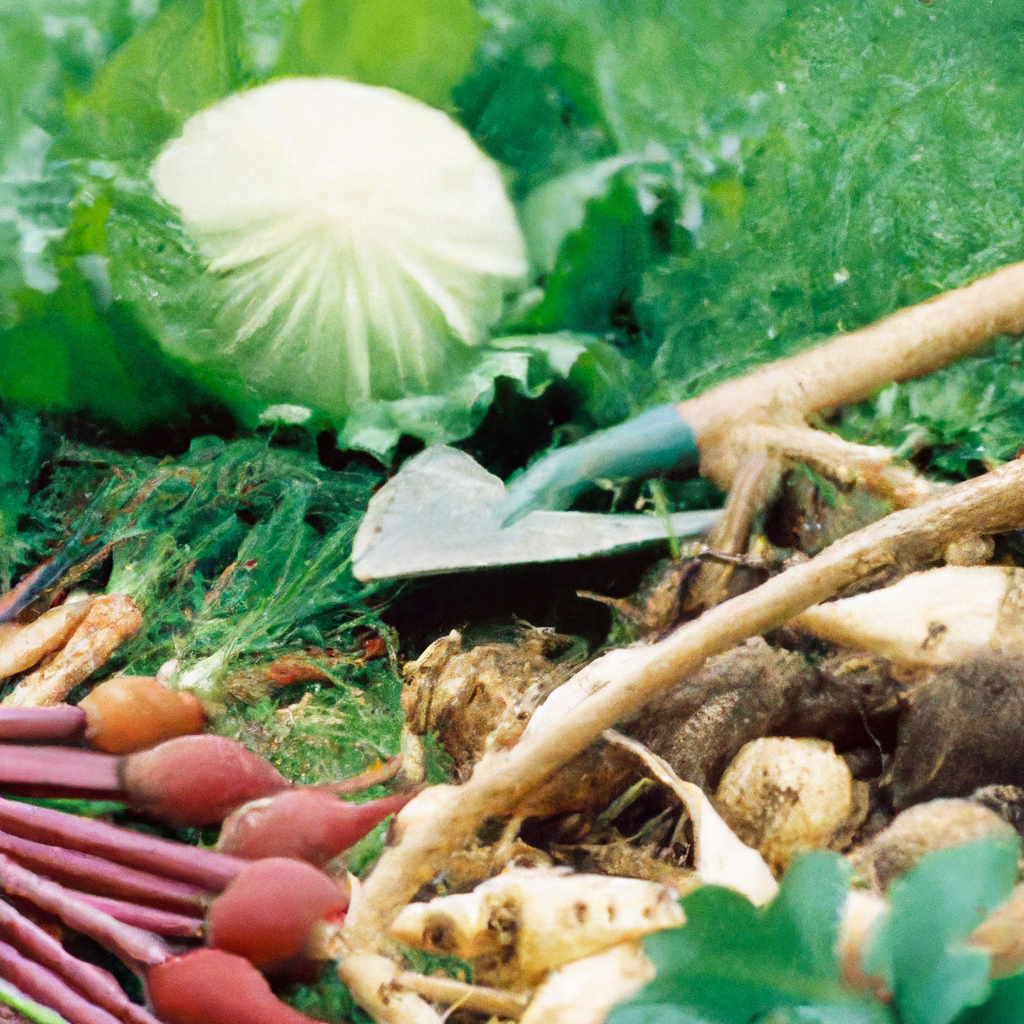
Did you know that you can engage in farming even if you live in the heart of the city? Urban farming is a growing trend that allows individuals to cultivate food and plants in urban areas. Whether you have a small balcony or a rooftop space, there are resources and tools available to help you start your own urban farming journey. From community gardens to online platforms, this article will introduce you to the top 10 resources for urban farming, providing you with all the information you need to get started and reap the rewards of growing your own food in the city. It’s time to embrace the green thumb within you and discover the endless possibilities of urban farming!
Top 10 Resources for Urban Farming
Urban farming is becoming increasingly popular as people look for sustainable and locally sourced food options. Whether you’re a beginner or experienced urban farmer, there are a wide range of resources and tools available to help you succeed. From government programs and initiatives to online platforms and websites, this article will explore the top 10 resources for urban farming.

1. Government Programs and Initiatives
1.1 Local Urban Agriculture Departments
Many cities and towns have established local urban agriculture departments to support and promote urban farming. These departments often provide resources such as land leasing programs, technical assistance, and education programs. They can also help navigate the regulatory and zoning requirements related to urban farming.
1.2 Grants and Funding Opportunities
Governments at various levels often offer grants and funding opportunities specifically for urban farming projects. These grants can help cover the costs of equipment, infrastructure, and other expenses associated with starting or expanding an urban farm. Keep an eye on government websites and local agricultural organizations for updates on available funding.
1.3 Community Gardens
Community gardens are excellent resources for urban farmers, especially for those who don’t have access to their own land. These shared spaces allow individuals and groups to grow their own crops and learn from experienced gardeners. In addition to providing access to gardening space, community gardens often offer educational programs and a sense of community.
1.4 Education and Training Programs
Government initiatives often include educational and training programs designed to support urban farmers. These programs may cover topics such as crop selection, soil health, pest control, and sustainable farming practices. Check with your local urban agriculture department or extension office for information on workshops, seminars, and other educational opportunities.
2. Non-Profit Organizations and NGOs
2.1 Urban Agriculture Advocacy Groups
Non-profit organizations and NGOs dedicated to urban agriculture play a crucial role in providing resources and support to urban farmers. These advocacy groups often advocate for policies that support urban farming, conduct research, and provide educational resources. They can also connect urban farmers with networking opportunities and help amplify their voices.
2.2 Resource Centers
Resource centers are valuable hubs of information for urban farmers, providing access to a wealth of knowledge and expertise. These centers offer resources such as books, magazines, and research papers on urban farming techniques and best practices. They may also host workshops, demonstrations, and consultations to assist urban farmers.
2.3 Collaborative Farming Projects
Collaborative farming projects bring together individuals and organizations to work collectively on farming ventures. These projects enable urban farmers to pool resources, share knowledge, and create a stronger impact within their communities. Collaborative farming projects can include initiatives such as community-supported agriculture (CSA) programs and cooperative farming endeavors.
2.4 Volunteer Opportunities
Non-profit organizations and NGOs often offer volunteer opportunities for individuals interested in urban farming. Volunteering allows you to gain hands-on experience, learn from experienced farmers, and contribute to the community. Look for local urban farming organizations or non-profits that offer volunteer programs to get involved and make a difference.

3. Online Platforms and Websites
3.1 Urban Farming Blogs and Websites
Online platforms and websites dedicated to urban farming provide a wealth of information and resources for both beginners and seasoned urban farmers. These platforms offer articles, guides, and tutorials on a wide range of topics, including sustainable farming practices, plant care, and marketing strategies. Some popular urban farming blogs even feature success stories and interviews with experienced urban farmers.
3.2 Online Marketplaces for Seeds and Supplies
Finding high-quality seeds and supplies is essential for any urban farmer. Online marketplaces specialized in urban farming offer a wide variety of seeds, seedlings, tools, and other supplies needed for successful farming. These platforms often provide detailed descriptions and customer reviews, helping you make informed decisions about your purchases.
3.3 Discussion Forums and Online Communities
Engaging with fellow urban farmers through online discussion forums and communities can be an invaluable resource. These platforms allow you to ask questions, share experiences, and learn from others who are passionate about urban farming. Take advantage of these online networks to seek advice, troubleshoot problems, and connect with like-minded individuals.
3.4 Resource Libraries and Toolkits
Online resource libraries and toolkits provide comprehensive collections of documents, guides, and resources related to urban farming. These platforms offer a wide range of materials, including research papers, case studies, and best practices guides. Accessing these resources can help you deepen your knowledge and make informed decisions about your urban farming practices.
4. Urban Farming Apps
4.1 Plant Care and Crop Management Apps
Plant care and crop management apps can help urban farmers keep track of their plants’ health and growth. These apps provide features such as reminders for watering and fertilizing, pest and disease identification, and tracking plant progress. By utilizing these apps, you can optimize your plant care routines and maximize your harvest.
4.2 Harvest Planning and Record-Keeping Apps
Harvest planning and record-keeping apps assist urban farmers in managing their harvests efficiently. These apps allow you to plan your harvest schedule, record crop yields, and track sales. By using these apps, you can stay organized, analyze trends, and make data-driven decisions to improve your farming operations.
4.3 Weather Forecast and Monitoring Apps
Weather plays a crucial role in urban farming, and weather forecast and monitoring apps can help you optimize your planting and irrigation schedules. These apps provide real-time weather updates, including precipitation predictions and temperature changes. By staying informed about weather conditions, you can adapt your farming practices accordingly and mitigate potential risks.
4.4 Market and Sales Management Apps
For urban farmers looking to sell their produce, market and sales management apps offer valuable tools to streamline their business operations. These apps enable you to track inventory, manage orders, and analyze sales data. Additionally, some apps provide features for marketing and promoting your products, connecting you with potential customers.

5. Sustainable Farming Techniques
5.1 Hydroponics
Hydroponics is a sustainable farming technique that allows you to grow plants without soil. Instead, plants are grown in nutrient-rich water solutions, which can lead to higher yields and faster growth rates. Hydroponics systems can be set up in small spaces, making them ideal for urban farming.
5.2 Aquaponics
Aquaponics combines hydroponics with aquaculture, creating a mutually beneficial system where plants and fish support each other’s growth. In an aquaponics system, fish waste provides nutrients for the plants, while the plants filter the water for the fish. This closed-loop system minimizes water usage and creates a sustainable and efficient farming method.
5.3 Vertical Farming
Vertical farming involves growing plants in vertically stacked layers, utilizing limited space more effectively. With the use of specialized lighting and climate control systems, vertical farming can be done indoors, allowing for year-round production. This technique maximizes productivity, reduces water consumption, and minimizes transportation costs.
5.4 Rooftop Farming
Rooftop farming utilizes the available space on rooftops to grow crops and raise livestock in urban areas. This technique helps combat food deserts and promotes local food production. It also has the added benefit of reducing heat absorption by buildings and mitigating the urban heat island effect.
6. Urban Farming Publications and Books
6.1 Books on Urban Farming and Permaculture
Books on urban farming and permaculture provide in-depth knowledge about sustainable farming practices and techniques. These books cover topics such as soil health, composting, pest management, and urban farm design. Reading these resources can help you develop a holistic understanding of urban farming and implement successful strategies on your own farm.
6.2 Magazines and Journals
Magazines and journals dedicated to urban farming provide regular updates on the latest trends, innovations, and success stories in the field. These publications often feature articles written by experts, interviews with urban farmers, and reviews of new products and technologies. Subscribing to these magazines can help you stay informed and inspired in your urban farming journey.
6.3 Research Papers and Case Studies
Research papers and case studies offer valuable insights into the science and practical applications of urban farming. These resources delve into topics such as sustainable agriculture, urban agriculture policy, and the economic viability of urban farming. Exploring research papers and case studies can help you make informed decisions based on evidence-based practices.

7. Farmer’s Markets and Local Food Networks
7.1 Farmer’s Markets
Farmer’s markets provide a direct avenue for urban farmers to sell their produce and connect with the local community. These markets often prioritize locally sourced and organic food, making them ideal platforms for urban farmers. Participating in farmer’s markets allows you to establish relationships with customers, receive feedback, and showcase your unique offerings.
7.2 Community Supported Agriculture (CSA)
Community Supported Agriculture (CSA) programs allow individuals to subscribe to a farm’s produce in advance, receiving a regular supply of fresh, seasonal produce. Joining a CSA program provides urban farmers with a steady customer base and a reliable source of income. It also fosters a sense of community and provides consumers with a deeper connection to the food they consume.
7.3 Food Co-operatives and Buying Clubs
Food co-operatives and buying clubs bring together consumers who collectively purchase food directly from producers. By participating in these initiatives, urban farmers can connect with individuals who value locally sourced and sustainably grown food. Co-operatives and buying clubs often prioritize fair prices for both producers and consumers, creating a more equitable food system.
8. Seed Banks and Exchanges
8.1 Local Seed Banks
Local seed banks preserve and distribute locally adapted seeds, ensuring the availability of diverse and resilient plant varieties. These seed banks often focus on heirloom and open-pollinated seeds that are well-suited for urban farming environments. By accessing local seed banks, urban farmers can maintain biodiversity and support the conservation of plant genetic resources.
8.2 Seed Exchange Programs
Seed exchange programs allow urban farmers to share and trade their surplus seeds with others. Participating in these programs helps diversify seed collections and reduces dependence on commercial seed suppliers. Seed exchange programs also foster a sense of community and promote knowledge sharing among urban farmers.
8.3 Seed Saving Techniques and Resources
Seed saving is an important practice for urban farmers who want to maintain seed sovereignty and cultivate locally adapted plant varieties. Resources and guides on seed saving techniques provide step-by-step instructions on how to save, store, and propagate seeds. By learning these techniques, urban farmers can become more self-reliant and contribute to the preservation of seed diversity.

9. Tools and Equipment Suppliers
9.1 Urban Farming Toolkits
Urban farming toolkits provide a comprehensive set of tools specifically designed for small-scale farming in urban environments. These toolkits often include essential gardening implements such as hand tools, watering cans, and pruners. Investing in an urban farming toolkit ensures you have the necessary equipment to maintain your farm efficiently.
9.2 Gardening Supplies and Equipment
Gardening supplies and equipment suppliers offer a wide range of products tailored to the needs of urban farmers. From potting soil and containers to garden hoses and trellises, these suppliers have everything you need to set up and maintain your urban farm. Look for suppliers that prioritize sustainable and eco-friendly products.
9.3 Composting Equipment and Systems
Composting is an integral part of sustainable urban farming, and specialized equipment and systems can help facilitate the process. Composting equipment suppliers offer compost bins, tumblers, and vermicomposting systems to make composting easier and more efficient. By composting your organic waste, you can reduce landfill waste and create nutrient-rich soil amendments for your crops.
9.4 Irrigation Systems and Water Management
Efficient water management is crucial for urban farming, where water resources are often limited. Suppliers of irrigation systems and water management solutions offer products such as drip irrigation systems, rainwater harvesting systems, and moisture sensors. These tools help you optimize water usage, reduce water waste, and ensure your plants receive the necessary hydration.
10. Educational Resources and Workshops
10.1 Workshops on Urban Farming Practices
Workshops on urban farming practices provide hands-on learning opportunities for aspiring and experienced urban farmers. These workshops cover various topics, including soil health, pest management, and season extension techniques. Attending workshops allows you to learn from experts, ask questions, and gain practical skills to implement on your urban farm.
10.2 Webinars and Online Courses
Webinars and online courses offer flexible and accessible educational opportunities for urban farmers. These digital resources cover a wide range of topics, from introductory courses on urban farming to specialized topics such as hydroponics or market gardening. Webinars and online courses allow you to learn at your own pace and supplement your knowledge conveniently.
10.3 Farm Tours and Field Days
Farm tours and field days give urban farmers the chance to visit established farms and see firsthand how successful operations are run. These experiences provide valuable insights into the day-to-day workings of an urban farm, from crop selection and planting techniques to marketing strategies. By participating in farm tours and field days, you can learn from experienced farmers and gain inspiration for your own urban farm.
In conclusion, urban farming offers a sustainable and rewarding way to produce food in urban environments. With the wide range of resources and tools available, aspiring urban farmers can access the support and knowledge needed to thrive. Government programs, non-profit organizations, online platforms, sustainable farming techniques, and educational resources all play a crucial role in empowering individuals to embark on their urban farming journey. By leveraging these resources, you can contribute to a more resilient and food-secure future. Happy farming!





